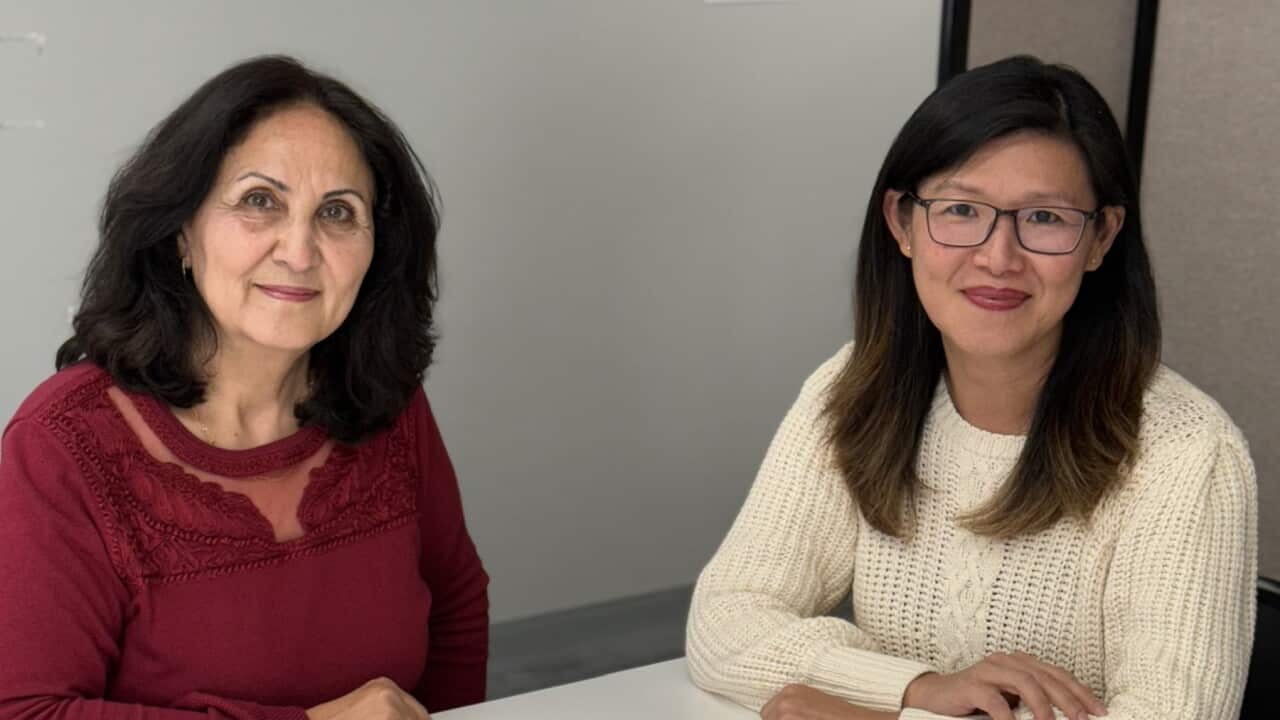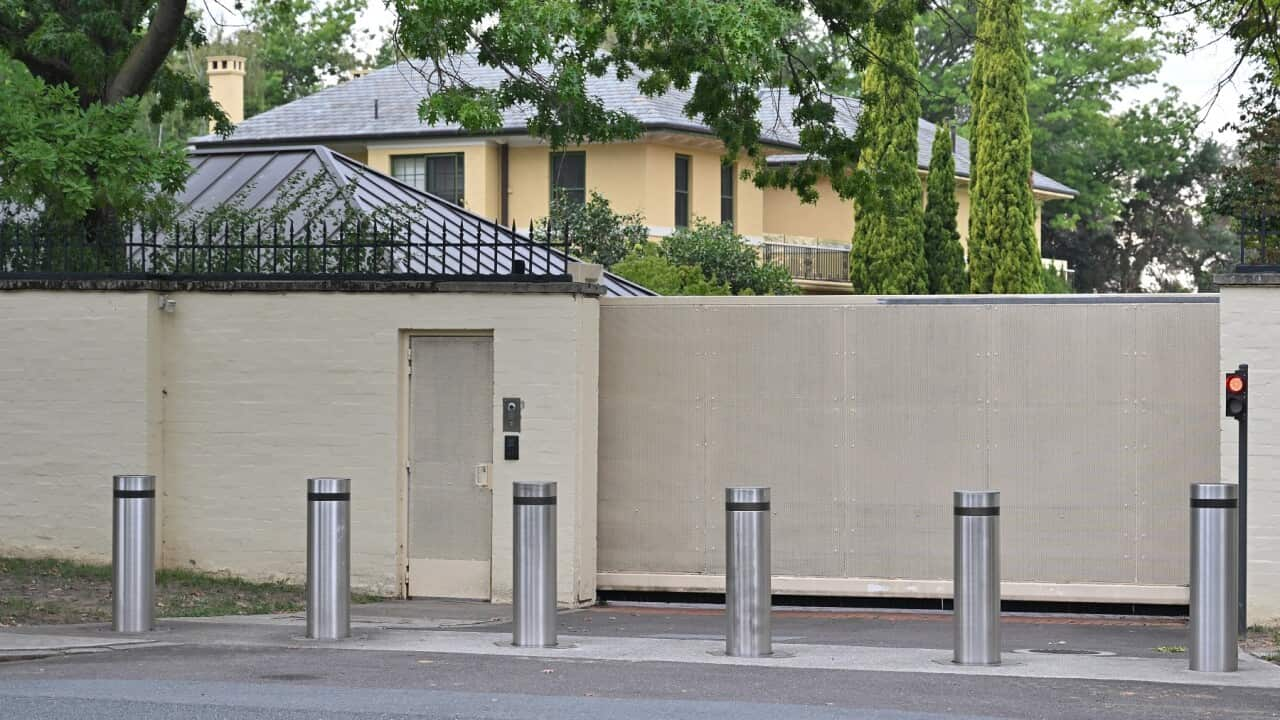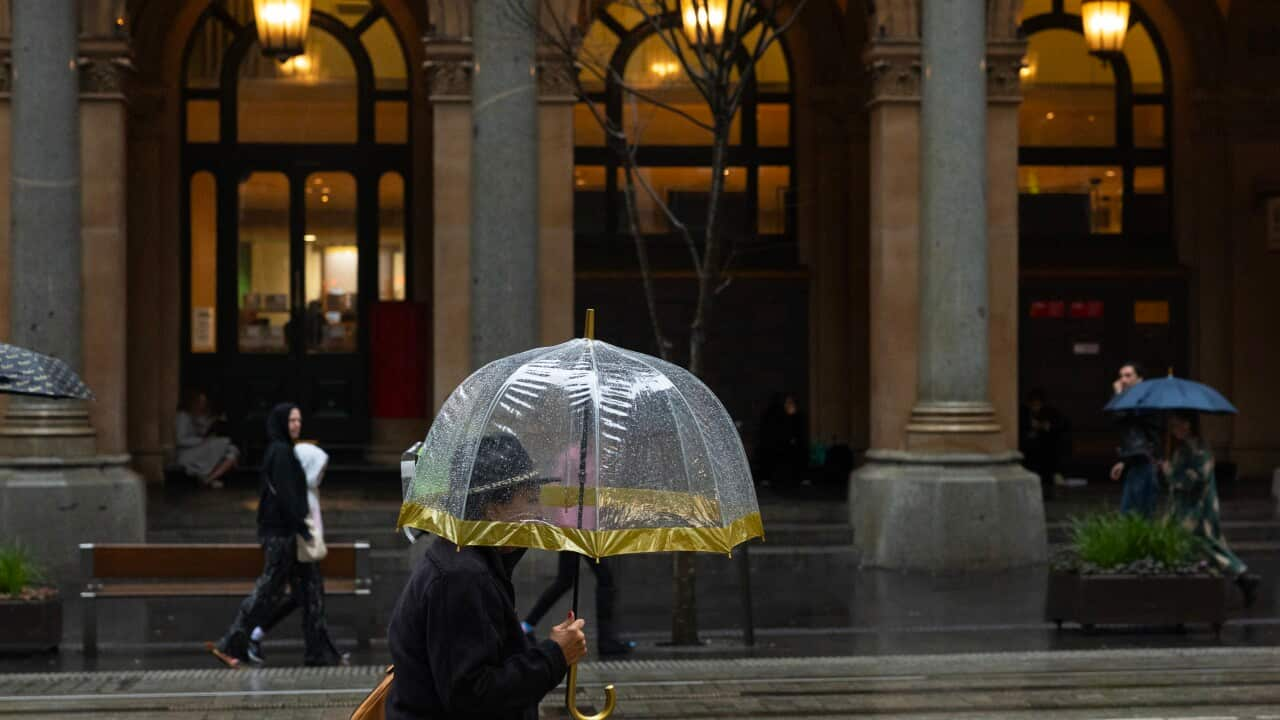Listen to Australian and world news, and follow trending topics with SBS News Podcasts.
TRANSCRIPT
For more than a decade, Melbourne-based social enterprise, Sisterworks, has been helping migrant and refugee women enter the workforce.
"If you're in a real interview, you're looking at the person, you're looking at their eyes."
Training courses focus on customer service, hospitality and people skills, as well as networking, resume writing and interviewing to ensure the women are 'job ready'.
But Ifrin Fittock, Sisterworks CEO, says late last year, a group of nine graduates found themselves in a situation neither they or their teachers had prepared for.
"We actually got caught on surprise when towards the end of last year we sent about nine sisters to an interview and they didn't make it, they didn't pass the interview. Upon investigation, we found out that they're actually not being interviewed face to face, but actually being interviewed by videos slash AI interviews and because they've never been exposed to it before, I think they just failed because they don't know what to do."
Their experience is not unique, with job seekers increasingly sharing their own experiences with so-called "robo" interviews on social media.
MAN: "Hello."
ROBOT: "Hi, thank you so much for joining the interview today. I'm so excited to talk to you and get to know more about you."
"Robo" interviews are when a candidate is interviewed by an AI system rather than a human.
Fittock says this style of interview can add extra barriers for migrant and refugee applicants.
"The challenges with these AI recruitment or AI interview for some of our sisters is really, first of all, English is not their first language, but also the level of digital literacy that they may or may not have because they need to actually navigate through, apart from answering questions, they also need to navigate that click of a button and pay attention to the timer and all that pressure really mounting up, especially when you see the ticking clock running in front of you. So it's all really quite confronting."
In 2024, 43 percent of organisations use AI "moderately" in their recruitment, while 19 per cent use the technology "extensively" when hiring new staff.
That's according to The Australian Responsible AI report, which details how Australian businesses are tracking when it comes to AI practices.
As employers increasingly embrace AI, video interview training is now part of the Sisterworks job course.
Fatemeh Hazrati - originally from Iran - is among those currently taking part in the program.
"AI has real big effect on our life nowadays. All of us have to learn it, [and] [We] just need to adapt ourself for new things and accept challenges to learn new things."
AI in recruitment is often touted for its ability to save both time and money.
But there are mounting concerns around its potential to discriminate.
Doctor Natalie Sheard is from the Melbourne Law School at the University of Melbourne.
She led a study published earlier this month that suggests AI hiring systems are creating new barriers to employment.
"So it could be older applicants, women, people who speak English as a second language, job seekers with disabilities. In my research I heard of systems not being accessible to job seekers with disabilities. I heard of CV screening systems using things like gaps in employment history to screen candidates out and having a gap in your employment history is a well-known proxy for gender as women tend to have time out of the workforce to care for family."
She also explains how those with English as a second language can be disadvantaged in video interviews.
"Another concern is that the way these systems tend to operate is the AI doesn't assess the video. What happens is the audio from your video is transcribed and then AI is used to evaluate your answer and it's well established that those transcription services perform poorly for people who speak English as a second language or have accents."
Monash University's Professor Andreas Leibbrandt has also researched the role of AI in recruitment.
He says there are benefits to the technology, and if deployed correctly, a system can be less bias than a human.
In one study, conducted in the US, he found women and non-anglo candidates are more likely to apply for a job if they know AI tools are being used.
"It's not that both women or ethnic minorities feel there's no bias in the AI algorithm, but they feel that this bias is less so than when they're faced with a human recruiter."
But he's concerned by a lack of transparency, regulation and potential bias built into algorithms.
"These AI algorithm are fed with training data sets or data sets from corporations. But their training data in itself may be biased. It may come from an organisation where there was, for instance, bias against women."
The issue around data sets and algorithms also emerged in Doctor Sheard's research.
"So one example there is a lot of these systems are built overseas, so they might've been trained on data on populations that aren't comparable to the Australian population. And therefore again, the system won't perform as well for particular demographic groups that we have in Australia. For example, refugees, migrant women, first Nations, Australians."
There are growing calls for the Australian government to better regulate the use of AI in recruitment.
Catherine Hunter, is the CEO of Diversity Council Australia - the independent not-for-profit peak body leading diversity and inclusion in the workplace.
"With such high adoption rates and the rapid acceleration of the technology, we're just concerned that people aren't putting in place the proper considerations around ethical use."
Experts saying the onus is on employers too - to both be transparent with candidates and ensure their algorithms don’t discriminate.













